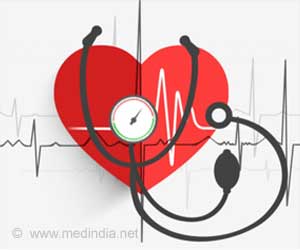
‘Treating high blood pressure during pregnancy with medicine does not appear to negatively impact fetal growth or development. It also improves maternal health.’
Tweet it Now
Severe cases are associated with increased risks of cardiovascular complications for mothers immediately or soon after delivery, and for years after pregnancy.Hypertension during pregnancy increased the risks for complications for the offspring such as preterm delivery, small for gestational age, and low birthweight.
Rates of hypertension during pregnancy are increasing globally, and the data indicate that it disproportionately affects women who are from diverse racial and ethnic backgrounds in the U.S., particularly those who are Black, American Indian, or Alaskan Native.
The goals of treatment during pregnancy include preventing severe hypertension and preventing early delivery to allow the fetus time to mature before delivery.
“For decades, the benefits of blood pressure treatment for pregnant women were unclear. And there were concerns about fetal well-being from exposure to antihypertensive medications,” said Chair of the statement writing group Vesna D. Garovic, M.D., Ph.D., a professor of medicine, chair of the division of nephrology and hypertension with a joint appointment in the department of obstetrics and gynecology at Mayo Clinic in Rochester, Minnesota.
Advertisement
According to the statement, among high-income countries, the United States has one of the highest hypertensive-related maternal mortality rates.
Advertisement
Preeclampsia, which occurs along hypertension affects 5% to 7% of pregnancies and is responsible for more than 70,000 maternal deaths and 500,000 fetal deaths worldwide every year, according to the American Heart Association.
Given the rising number of cases of hypertension during pregnancy, together with hypertension-related complications, the problem has become a public health crisis, particularly among women from racially and ethnically diverse backgrounds.
There is a lack of consensus about when to start hypertension treatment during pregnancy because of concerns about how medications may impact the fetus.
Several health advocacy groups recommend beginning treatment when blood pressure measures during pregnancy are from 140/90 mm Hg (Canadian guidelines) to 160/110 mm Hg (U.S. guidelines).
The new statement points to evidence that blood pressure-lowering therapy for pregnancy hypertension significantly reduces the incidence of severe hypertension.
Future studies should address whether lowering the threshold for treating hypertension during pregnancy might allow for safe and timely blood pressure control and avoid a rushed delivery because of uncontrolled hypertension.
The statement also reinforces recent research that suggests lifestyle changes before and during pregnancy have the potential to improve maternal and fetal outcomes:
Dietary changes before and during pregnancy can limit weight gain and improve pregnancy outcomes.
Exercise during pregnancy may reduce gestational hypertension risk by about 30% and preeclampsia risk by about 40%.
There is emerging evidence that hypertension after delivery (postpartum) may be associated with significant maternal health problems.
Physicians should individualize treatment decisions, considering risk factors and patient preferences.
The care of women with hypertension during pregnancy is often complex, and a multispecialty team of health care professionals may be beneficial.
Source-Medindia














